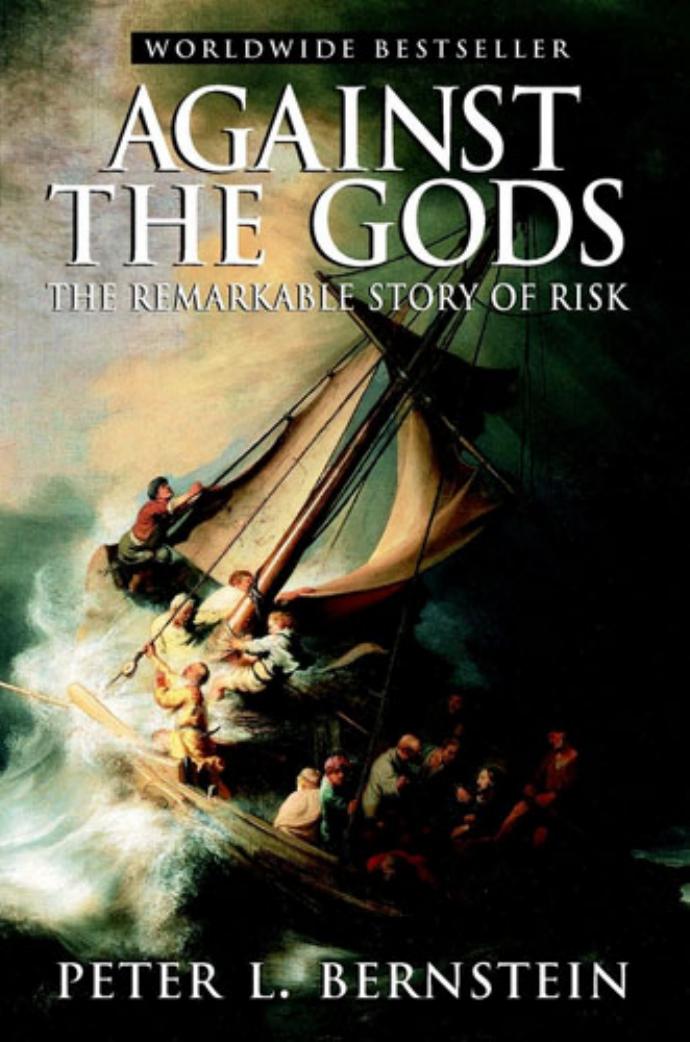Against the Gods: The Remarkable Story of Risk by Peter L. Bernstein

Author:Peter L. Bernstein
Language: eng
Format: mobi, epub, azw3, pdf
Published: 2011-05-23T21:50:00+00:00
Utility theory was rediscovered toward the end of the eighteenth century by Jeremy Bentham, a popular English philosopher who lived from 1748 to 1832. You can still see him on special occasions at University College, London, where, under the terms of his will, his mummified body sits in a glass case with a wax head to replace the original and with his hat between his feet.
His major work, The Principles of Morals and Legislation, published in 1789, was fully in the spirit of the Enlightenment:
Nature has placed mankind under the governance of two sovereign masters, pain and pleasure. It is for them alone to point out what we ought to do, as well as to determine what we shall do.... The principle of utility recognizes this subjection, and assumes it for the foundation of that system, the object of which is to rear the fabric of felicity by the hands of reason and law.2
Bentham then explains what he means by utility: "... that property in any object, whereby it tends to produce benefit, advantage, pleasure, good, or happiness .... when the tendency it has to augment the happiness of the community is greater than any it has to diminish it."
Here Bentham was talking about life in general. But the economists of the nineteenth century fastened onto utility as a tool for discovering how prices result from interactive decisions by buyers and sellers. That detour led directly to the law of supply and demand.
According to the mainstream economists of the nineteenth century, the future stands still while buyers and sellers contemplate the opportunities open to them. The focus was on whether one opportunity was superior to another. The possibility of loss was not a consideration. Consequently the distractions of uncertainty and the business cycle did not appear in the script. Instead, these economists spent their time analyzing the psychological and subjective factors that motivate people to pay such-and-such an amount for a loaf of bread or for a bottle of port-or for a tenth bottle of port. The idea that someone might not have the money to buy even one bottle of port was unthinkable. Alfred Marshall, the pre-eminent economist of the Victorian age, once remarked, "No one should have an occupation which tends to make him anything less than a gentleman."3
William Stanley Jevons, a card-carrying Benthamite with a fondness for mathematics, was one of the prime contributors to this body of thought. Born in Liverpool in 1837, he grew up wanting to be a scientist. Financial difficulties, however, prompted him to take a job as assayer in the Royal Mint in Sydney, Australia, a gold-rush boom town with a population rapidly approaching 100,000. Jevons returned to London ten years later to study economics and spent most of his life there as Professor of Political Economy at University College; he was the first economist since William Petty to be elected to the Royal Society. Despite his academic title, Jevons was among the first to suggest dropping the word "political" from the phrase "political economy.
Download
Against the Gods: The Remarkable Story of Risk by Peter L. Bernstein.epub
Against the Gods: The Remarkable Story of Risk by Peter L. Bernstein.azw3
Against the Gods: The Remarkable Story of Risk by Peter L. Bernstein.pdf
This site does not store any files on its server. We only index and link to content provided by other sites. Please contact the content providers to delete copyright contents if any and email us, we'll remove relevant links or contents immediately.
The Secrets of Successful Financial Planning by Dan Gallagher(1537)
A Knight's Reward by Catherine Kean(1342)
An American Sickness by Elisabeth Rosenthal(1268)
Against the Gods by Peter L. Bernstein(1119)
FREAKONOMICS by levitt steven d(1114)
SuperFreakonomics by Steven D. Levitt(1088)
America's Bitter Pill: Money, Politics, Backroom Deals, and the Fight to Fix Our Broken Healthcare System by Steven Brill(1086)
America's Bitter Pill by Steven Brill(1073)
2019 Social Security & Medicare Facts by Michael D. Thomas(1044)
A Practical Introduction to Security and Risk Management by Bruce Oliver Newsome(1043)
Risk Management Framework by James Broad(1042)
The Globetrotter's Guide to Travel Insurance: Travel Smarter, Pay Less, Get the Right Coverge (The Savvy Traveler Series Book 1) by Bauche Michael & Bauche Yvonne(1039)
Strategic Risk Taking: A Framework for Risk Management by Aswath Damodaran(1038)
The New Frontier Investors by Jagdeep Singh Bachher Adam D. Dixon & Ashby H. B. Monk(1029)
Game Changers by Rudolf Taschner(1018)
How Our Days Became Numbered: Risk and the Rise of the Statistical Individual by Dan Bouk(1013)
The 8 Characteristics of the Awesome Adjuster by Carl van Lamsweerde(947)
SUPERFREAKONOMICS by levitt steven d(937)
The Advisor Playbook: Regain Liberation and Order in your Personal and Professional Life by Duncan MacPherson & Chris Jeppesen(911)
